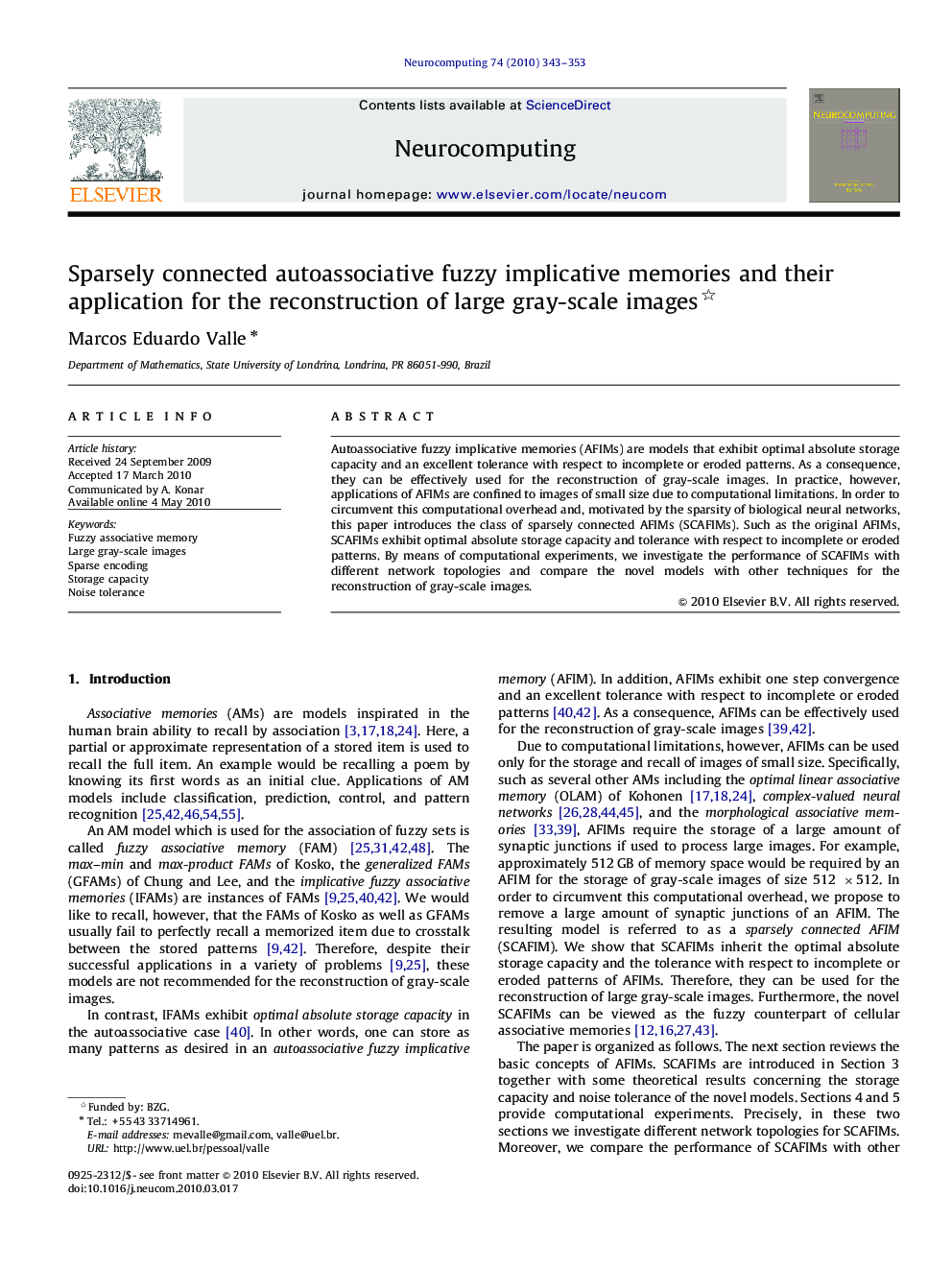| Article ID | Journal | Published Year | Pages | File Type |
|---|---|---|---|---|
| 411072 | Neurocomputing | 2010 | 11 Pages |
Autoassociative fuzzy implicative memories (AFIMs) are models that exhibit optimal absolute storage capacity and an excellent tolerance with respect to incomplete or eroded patterns. As a consequence, they can be effectively used for the reconstruction of gray-scale images. In practice, however, applications of AFIMs are confined to images of small size due to computational limitations. In order to circumvent this computational overhead and, motivated by the sparsity of biological neural networks, this paper introduces the class of sparsely connected AFIMs (SCAFIMs). Such as the original AFIMs, SCAFIMs exhibit optimal absolute storage capacity and tolerance with respect to incomplete or eroded patterns. By means of computational experiments, we investigate the performance of SCAFIMs with different network topologies and compare the novel models with other techniques for the reconstruction of gray-scale images.
